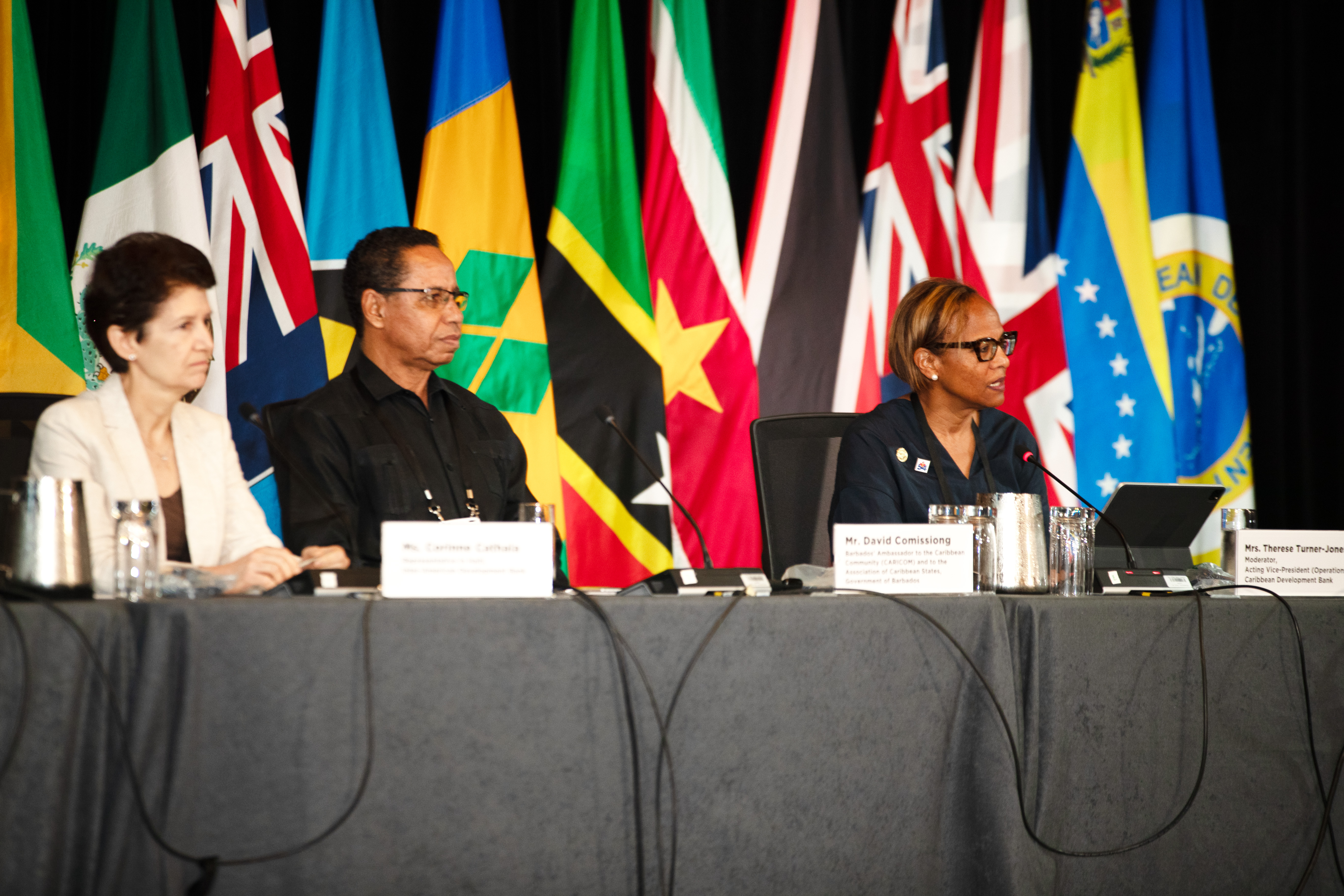20/06/2024
Experts Chart Pathways for Peace in Haiti at Caribbean Development Bank Annual Meeting
By CDB


In a significant move to address Haiti’s ongoing crisis, experts at the Caribbean Development Bank (CDB)'s 54th Annual Meeting outlined strategies for restoring stability and fostering peace in the nation. Haiti Now: Development Priorities and Interventions explored collaboration between Haiti’s interim council and international and regional partners, aiming to align CDB’s efforts with the nation’s development priorities.
The forum explored ways regional and international institutions can build social, economic, and climate resilience, and promote political stability to support Haiti’s transition to emerging country status by 2030, in alignment with the nation’s Strategic Development Plan. It also underscored the importance of strong partnerships, sustained engagement, and strategic investments to help Haiti transition from fragility to stability and prosperity.
The discussion, moderated by CDB’s Vice President for Operations (Ag) Mrs. Therese Turner-Jones, tackled the impacts of political uncertainty and gang violence on development, offering recommendations for improvement. It also examined how regional and international institutions can build social, economic, and climate resilience, promoting political stability to support Haiti’s goal of achieving emerging country status by 2030, in alignment with its Strategic Development Plan.
Mr. Sylvie Bedard, Director General for Latin America and the Caribbean, Government of Canada, opened the session by commending the CDB's sustained engagement in Haiti. “Addressing the root causes of fragility and violence and building resilience will require strong partnerships, sustained engagement with the State, civil society, and the private sector as well as flexible and adaptive approaches,” she said, emphasising the importance of robust due diligence and effective donor coordination.
Mr. David Commissiong, Barbados’ Ambassador to the Caribbean Community and Common Market (CARICOM), highlighted the resilience of the Caribbean people. “The concept of resilience defines the Caribbean people and the Caribbean civilisation,” he noted. “We have every confidence there is nothing, no misfortune, that the Haitian people cannot overcome.” He also affirmed CARICOM’s deep commitment to helping Haiti stabilise and integrate fully into the regional developmental nexus.
Ms. Corinne Cathala, Inter-American Development Bank (IDB) Representative in Haiti, emphasised the importance of continuous presence in Haiti despite ongoing crises. “We have continued implementing projects even in this very difficult context and will continue doing so,” she remarked. Cathala noted the IDB's shift in focus towards social programmes, particularly in education and health, to address the pressing needs of the population.
Professor Samuel Pierre, a Haitian/Canadian academic, detailed the critical infrastructure needs in Haiti. “We have identified four major categories of infrastructure needed in Haiti: energy, communications, transport, and roads,” he outlined, stressing the foundational role of these projects in Haiti's development.
Mr. Jason Cotton, CDB Lead Economist, provided context on Haiti's social issues, particularly the pronounced inequality between rural and urban areas and persistent gender inequality. "There is an urgent need to restore peace and stability to accelerate growth in Haiti," Mr. Cotton stated. "Addressing security issues is at the very core of accelerating growth."
Haiti Now: Development Priorities and Interventions was the highlight of day two of the CDB’s 54th Annual Meeting in Ottawa, Canada. The Annual Meeting continues on Wednesday with the Opening Ceremony, at which CDB Acting President, Mr. Isaac Solomon will be the keynote speaker.

TO RECEIVE NEWS NOTIFICATIONS VIA WHATS APP PLEASE SAVE OUR NUMBER AND SEND US A MESSAGE AT 7584896261 AND WE WILL ADD YOU TO OUR LIST





